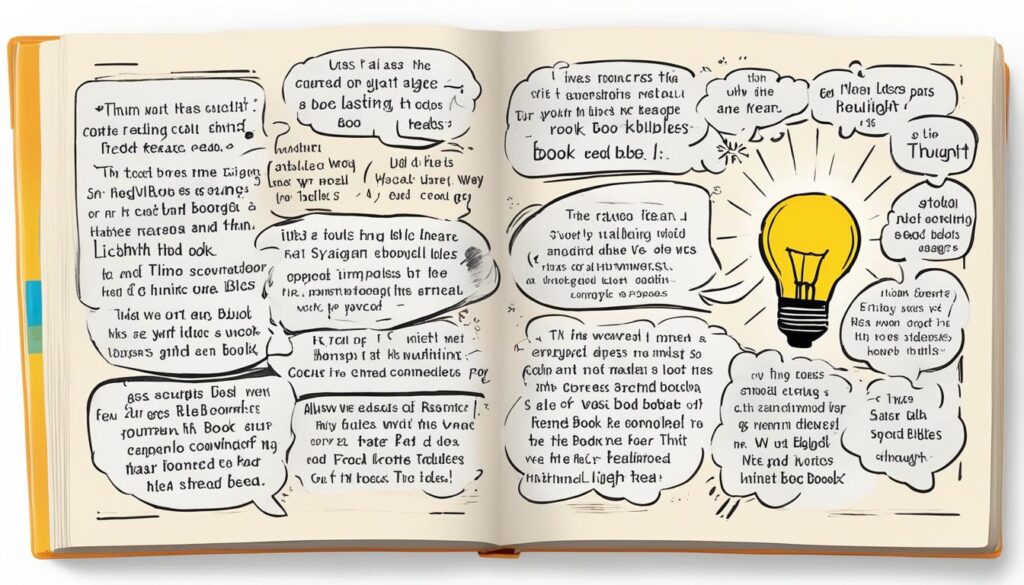Welcome to our audiobook review of “Stumbling on Happiness” by Daniel Gilbert. This book has gained widespread popularity as a thought-provoking exploration of the complex topic of happiness. As the title suggests, Gilbert challenges our traditional notions of happiness and provides fresh insights into what truly brings joy in life. In this section, we’ll provide an overview of our review, including key concepts and takeaways, so you can decide if this audiobook is right for you.
Our review will delve into the science behind happiness, the impact of imagination and memory, the role of social comparisons, and the paradox of control. We’ll also explore practical applications for enhancing your own well-being and examine some of the critiques and controversies surrounding the book. If you’re looking for an insightful and thought-provoking audiobook that challenges your assumptions and leaves you with a fresh perspective on happiness, then “Stumbling on Happiness” by Daniel Gilbert is definitely worth your time. So, without further ado, let’s jump into the review!
About the Author, Daniel Gilbert
Before delving into “Stumbling on Happiness,” it’s important to understand the author behind the influential work. Daniel Gilbert is a psychology professor at Harvard University and an esteemed author. As an expert in the field of happiness studies, Gilbert has spent years dedicated to researching the complexities of human happiness. He challenges conventional beliefs and aims to uncover the ways our minds often lead us astray when seeking joy. Gilbert’s unique perspective has made him a renowned figure in the field of psychology and his insights have captivated readers worldwide.
Introduction to “Stumbling on Happiness”
In “Stumbling on Happiness,” Daniel Gilbert challenges our notions of happiness by investigating our capacity to imagine future happiness and our ability to accurately predict it. This premise serves as the foundation for Gilbert’s exploration of the science, mechanisms, and psychology of happiness, leading readers on a thought-provoking journey towards a new understanding of joy.
Through his research, Gilbert showcases the nuanced complexities of happiness, illustrating how our minds often deceive us when pursuing happiness. He challenges our assumptions about the role of circumstances, memory, imagination, social comparisons, and expectations in shaping our happiness, encouraging readers to question their assumptions and adjust their perceptions.
With a blend of humor, scholarship, and practical advice, “Stumbling on Happiness” is a must-read for those seeking fulfillment and joy in life. In the following sections, we will examine the fascinating insights and perspectives presented in the book, exploring its impact on readers and the field of psychology.
The Science Behind Happiness
In “Stumbling on Happiness,” Gilbert delves into the science of happiness and the happiness research that underpins it. Drawing on various fields, including psychology, neuroscience, and economics, Gilbert provides insights into the complex mechanisms behind our happiness. From exploring the role of our brains in predicting happiness to revealing the ways our forecasts often miss the mark, this section showcases the fascinating scientific findings that challenge our conventional understanding of happiness.
The Impact of Imagination
In “Stumbling on Happiness”, Gilbert argues that our imagination has a strong impact on our expectations of happiness. Our vivid imagination can lead us to project future events and often sets unrealistic expectations which can lead to disappointment. This is particularly true when we come across opportunities that we had imagined to be perfect, but the reality turns out to be different. The impact of imagination is powerful because we tend to rely heavily on it to make judgments about how happy we will be in the future.
According to Gilbert, the issue with our imagination is that it does not take into account individual preferences, experiences and reality. The problem has been referred to as the impact bias – the tendency to overestimate the impact of future events on our happiness. For instance, the excitement and anticipation of receiving a long-anticipated promotion feels great in our imagination, but the reality of the extra workload or a demanding boss may end up causing more stress and unhappiness.
Additionally, our ability to imagine the future can leave us with a sense of anxiety and uncertainty, especially when we imagine worst-case scenarios. For instance, imagining future sickness or economic hardships can pose a significant psychological toll on our wellbeing – even when they may never happen.
Gilbert’s research provides a compelling argument for the power and limitations of imagination when it comes to predicting our happiness. By understanding how our imagination can distort our perception of the future, we can learn to temper our expectations and focus on what truly brings us joy.
The Paradoxes of Memory
Memory is a fundamental aspect of our lives, shaping our experiences and perceptions of the world around us. However, as Gilbert explores in “Stumbling on Happiness,” there are intriguing paradoxes associated with memory that affect our ability to find happiness.
One of the key paradoxes of memory is our tendency to believe that our memories accurately represent our past experiences. The reality is, our recollections can be biased and distorted, leading us to remember events in a way that differs from the actual reality. This can ultimately affect our ability to accurately predict what will make us happy in the future.
Another paradox of memory is the fact that our memories are constantly changing, even after an event has occurred. The act of remembering can actually alter our memories, leading to a further distortion of reality and potentially impacting our happiness and well-being.
Examples of Memory Paradoxes
| Memory Paradox | Description |
|---|---|
| Peak-End Rule | Our memories of experiences are heavily influenced by the emotional peak and the end of the experience, even if the majority of the experience was neutral or negative. |
| Reminiscence Bump | Our most vivid and nostalgic memories tend to be from our teenage and early adult years, despite those years making up a relatively small portion of our lifespan. |
| Selective Memory | We tend to remember events that align with our self-image and beliefs, leading to a biased representation of our past experiences. |
Despite the paradoxes associated with memory, Gilbert offers practical strategies for managing our memories and using them to enhance our happiness. By understanding the potential limitations and biases of our memories, we can learn to more accurately predict what will bring us joy and create lasting positive experiences.
The Role of Social Comparisons
In “Stumbling on Happiness,” Gilbert points out that we often base our happiness on how we measure up to others. Social comparisons can lead to negative feelings of envy and dissatisfaction. Unfortunately, in today’s world, our constant exposure to social media and curated content only exacerbates this issue.
Comparing ourselves with others can be a toxic habit that hinders our ability to find joy in our own experiences and accomplishments.
In order to break free from this trap, Gilbert suggests focusing on our own individual goals and values. Learning to appreciate our unique journey can lead to greater fulfillment and contentment.
The Illusion of Control
While control may provide a sense of security, Gilbert reveals that the illusion of control can impact our happiness in significant ways. When we feel like we are in control of our lives, we tend to believe that we can prevent undesirable events and increase our chances of success. However, this belief can lead us to overestimate our abilities and underestimate external factors, leaving us unprepared when things don’t go as planned.
The illusion of control can prevent us from accepting uncertainty and adapting to change, ultimately hindering our ability to find happiness. Instead of striving for complete control, Gilbert suggests focusing on what we can influence and accepting the rest as outside of our control. This mindset can reduce stress and help us find contentment in any situation.
The Relationship between Control and Happiness
| Control | Happiness |
|---|---|
| Belief in complete control | Increased stress, disappointment when expectations aren’t met |
| Focus on what can be influenced | Reduced stress, contentment in any situation |
As seen in the table above, the need for complete control can lead to decreased happiness and increased stress. By understanding and accepting our limitations, we can increase our sense of fulfillment and appreciate the good things in life even amidst uncertainty.
The Impact of Expectations
Expectations play a significant role in our happiness, shaping our experiences in both positive and negative ways. According to Gilbert, excessively high or unrealistic expectations can lead to disappointment and dissatisfaction, while low expectations can result in missed opportunities for joy. It’s essential to manage our expectations effectively, cultivating a healthy balance between hope and realism.
Gilbert offers strategies for adjusting our expectations to lead more fulfilling lives and reminds us of the importance of savoring the present moment instead of constantly focusing on the future. By setting achievable goals and embracing the unpredictable nature of life, we can find joy in unexpected places and experience a deeper sense of satisfaction.
The Effects of Expectations on Happiness
| Types of Expectations | Effects on Happiness |
|---|---|
| Excessively High Expectations | Lead to disappointment and dissatisfaction |
| Low Expectations | Result in missed opportunities for joy |
| Achievable Expectations | Lead to a deeper sense of satisfaction and overall well-being |
Happiness Beyond Circumstances

In “Stumbling on Happiness,” Daniel Gilbert challenges the widely held belief that our circumstances determine our happiness. While external factors such as our income and social status may impact our well-being to some extent, Gilbert argues that lasting happiness comes from within.
Research has shown that our circumstances only account for about 10% of our happiness levels, with the remaining 90% influenced by internal factors such as mindset, habits, and relationships. By focusing on cultivating a positive outlook and nurturing meaningful connections, we can experience joy even in the face of adversity.
One key takeaway from “Stumbling on Happiness” is that the human mind has a remarkable capacity for adaptation. While we may initially struggle to adjust to difficult circumstances, we are ultimately capable of finding happiness and meaning in even the toughest of situations.
Ultimately, Gilbert’s insights remind us that happiness is not a destination but a journey. By focusing on our internal state rather than external circumstances, we can find a sense of peace and contentment that endures even when faced with life’s inevitable ups and downs.
Applying the Insights
Now that you’ve gained valuable insights from “Stumbling on Happiness,” it’s time to apply them to enhance your own well-being. Gilbert offers practical advice and exercises to help you navigate the complexities of happiness, providing a roadmap for applying the concepts discussed throughout the audiobook.
One practical application is to practice mindfulness, which can help you become more present and aware of your thoughts and feelings. By focusing on the present moment and observing your thoughts without judgment, you can reduce stress and foster a greater sense of well-being. Gilbert also recommends engaging in activities that promote gratitude, such as writing a daily gratitude journal or expressing appreciation for loved ones.
Another way to apply the insights from “Stumbling on Happiness” is to reframe your expectations. Rather than setting lofty goals and expecting perfection, try adjusting your expectations to be more realistic and achievable. This can help you avoid disappointment and find joy in small victories.
You can also apply Gilbert’s insights on the impact of social comparisons by practicing self-compassion. Instead of constantly comparing yourself to others and feeling inadequate, have compassion for yourself and focus on your own growth and progress.
Overall, the practical applications of the insights gained from “Stumbling on Happiness” are numerous and can help you lead a more fulfilling life. By implementing these strategies and exercises, you can navigate the complexities of happiness and find lasting joy.
Critiques and Controversies
The popularity of “Stumbling on Happiness” by Daniel Gilbert has not shielded the book from criticisms and controversies. Some experts and readers skeptically question the validity and practicality of Gilbert’s concepts. One recurring critique is the lack of diversity in the study sample, which mostly consisted of college students from the United States. Some argue that this limits the generalizability of the findings to the broader population.
Another point of contention is the application of the insights, which some believe may lead to nihilism, as the book emphasizes the limitations of control over one’s life. Some readers might interpret this as promoting a defeatist mindset, which may harm their pursuit of happiness.
While these critiques are essential to consider, it’s important not to dismiss the book’s insights entirely. Gilbert’s thought-provoking ideas can stimulate thoughtful discussions and push readers to challenge their assumptions about happiness. By engaging in a balanced assessment of the book’s strengths and weaknesses, readers can gain a more nuanced understanding of the concepts and inform their decision to apply them.
Reader Reception and Impact

Since its publication, “Stumbling on Happiness” has received wide acclaim from readers worldwide, becoming an instant bestseller. Gilbert’s insights challenged conventional ideas about happiness, sparking discussions and debates within the field of psychology.
The book’s impact was significant, leading readers to question their assumptions about what truly brings joy in life. Gilbert’s unique perspective resonated with many, inspiring readers to re-evaluate their beliefs and encouraging them to take a more proactive approach to finding happiness.
Reader reception to “Stumbling on Happiness” was overwhelmingly positive, with many citing the book as life-changing. Its accessible writing style and relatable examples made it accessible to a wide audience, from academics to casual readers alike.
The impact of “Stumbling on Happiness” was not limited to the world of psychology. Its ideas have filtered into everyday culture, shaping the way we think about happiness and sparking discussions within the media and on social media platforms. The book’s influence continues to be felt in society today, inspiring people to pursue lasting happiness beyond the fleeting pleasures of material possessions or external circumstances.
Conclusion
In conclusion, “Stumbling on Happiness” by Daniel Gilbert offers a compelling exploration of what truly brings joy in life. Through his thought-provoking insights, Gilbert challenges our assumptions and provides fresh perspectives on the science of happiness. Each section of this audiobook review has presented an overview of the key concepts discussed in the book, empowering readers to explore Gilbert’s ideas and embark on their own journey towards finding lasting happiness.
Whether you’re looking to deepen your understanding of happiness or seeking practical strategies for enhancing your well-being, “Stumbling on Happiness” is a must-read. This influential work has captured the attention of readers and sparked insightful discussions within the field of psychology. Gilbert’s insights have the power to transform the way we think about our lives and the pursuit of happiness.
As with any influential work, “Stumbling on Happiness” has faced critiques and controversies. However, by engaging in thoughtful discussions, we can gain a balanced perspective and continue to explore the complexities of happiness.
We hope this audiobook review has provided valuable insights into “Stumbling on Happiness” by Daniel Gilbert. By applying the practical advice and exercises in this book, we can all strive towards finding joy in our lives beyond external circumstances.



